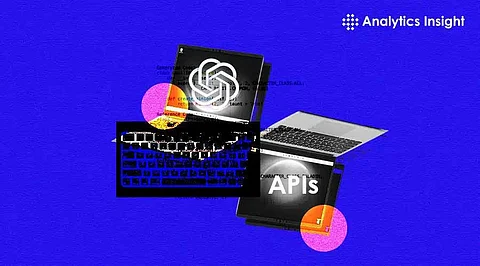

With the rising trend of using artificial intelligence among businesses to transform the nature of operations, there has been a tremendous increase in the demand for AI-driven powerful language models. Even though OpenAI's ChatGPT is a first choice, many other alternatives are coming forward with different features and capabilities. Here, we will look into some of the best alternatives to ChatGPT and analyze their worth to businesses in 2025.
Google Gemini has rapidly gained popularity as an alternative to ChatGPT. It uses Google's entire knowledge base and highly advanced language processing.
Pros:
Integration with Google Workspace
Real-time information updates ensuring the AI remains current
Excellent multilingual support for companies with diverse business operations worldwide
Cons:
Occasionally inaccurate as it is still under development.
There isa limited option for customization should a business seek a specific solution.
Best for: Those already established in the Google ecosystem or who need precise, timely information from a reliable source
Anthropic's Claude has been known to be ethical and to have really sharp reasoning skills; therefore, in complex decision-making scenarios, this is a real competitor.
Pros:
Deep contextual understanding, particularly in complex or ethical discussions
Strong safety and ethical AI practices
It is robust and able to execute intricate, multi-step tasks
Cons:
Less adopted compared to ChatGPT, thus its developers and users' community are less populated
Need for specific prompts for good results
Best for: Firms emphasizing ethical AI that involve delicate, complicated activities and workloads related to confidential data.
Microsoft Copilot, formerly Bing Chat, integrates AI into all the productivity tools that Microsoft offers, including Word, Excel, and Outlook.
Pros:
Strong integration with Microsoft 365 to improve productivity tools like Word and Excel
Excellent support for coding and programming
Combines AI-driven responses with real-time web search results
Cons:
Requires a Microsoft 365 subscription to access its capabilities fully
Not very flexible for companies that are not part of the Microsoft world
Best for: Companies that use a lot of Microsoft tools and services and are more productivity or development-oriented
Meta open-source LLaMA 2 model is mainly for businesses looking for flexibility and control over the deployed AI systems.
Pros:
Open-source model offering complete customization and control
High performance across various language tasks, making the model adaptable for various use cases
Has no usage restriction, giving absolute freedom for any business application
Cons:
Demands a very high level of technical expertise to put into practice and maintain
Not as user-friendly as a managed AI service like ChatGPT
Best for: Technology-savvy businesses and developers who need a customizable solution with no vendor lock-in.
To choose the right ChatGPT alternative for your business, look for the following:
Integration: How well does the AI solution integrate with your existing tech stack (e.g., CRM, cloud systems, productivity tools)?
Customization: Are you looking for a flexible and customizable solution or an out-of-the-box service?
Specialization: Are you looking for general-purpose AI or industry-specific AI?
Data Privacy: How will the AI manage sensitive or confidential business data?
Scalability: Will the AI grow with your business to accommodate increasing needs?
The AI landscape in 2025 is constantly changing, and while the bar has been set very high by ChatGPT, other competitions have unique strengths that businesses can exploit to achieve success. Google Bard excels at real-time information and integration with the Google ecosystem, Claude shines for its flawless ethical AI and reasoning abilities, Microsoft Copilot shines in smooth productivity and coding support, LLaMA 2 cannot be beaten in terms of customization.
Ultimately, the best AI solution depends on your business’s specific needs, technical expertise, and strategic goals. As the AI industry evolves, regularly reassessing your tools and their alignment with your objectives will help you stay ahead in an ever-changing technological landscape. Businesses can unlock new efficiencies, boost productivity, and drive innovation by choosing the right AI model.
